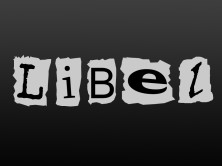Ted Diadiun, the Plain Dealer's readers representative, took up the issue of undercover stings in a recent column. (Credit: Plain Dealer)
Reader representative Ted Diadiun opined on the subject of undercover stings and media ethics in a recent column for the Cleveland Plain Dealer. Diadiun highlighted a couple of well-known stings and commented that undercover reporting with the goal of proving or catching the subject saying or doing something doesn’t “mix” with journalism.
Diadiun noted that “a sting begins with a preordained goal,” which runs counter to the goals of journalism, under which reporters are expected to report what happens without any stake in the ending.
Plain Dealer managing editor Thom Fladung reportedly agreed with Diadiun, commenting that “sting operations are incompatible with journalism” and noting that they don’t offer “multiple sides of the story.”
According to Diadiun, the Plain Dealer’s ethics guidelines require staff to not “affirmatively misrepresent their identities to obtain information” unless the editor approves. Staff can “remain silent about who we are” for observation purposes, however. It seems under these guidelines, lying by omission is OK, but staffers can’t lie by commission. We have written to the Plain Dealer to ask about this.
In the past year, there have been several high-profile “undercover stings.” For example:
- Last month, James O’Keefe’s Project Veritas caught NPR executive Ron Schiller making controversial comments about Tea Party supporters. The video led to his leaving NPR and the resignation of NPR CEO Vivian Schiller, but the sting has been analyzed and criticized for its editing. O’Keefe is well-known from his role in the ACORN undercover video that led to the organization’s closing.
- In February, the editor of the Buffalo Beast was criticized after he hoaxed Wisconsin governor Scott Walker. The editor, Ian Murphy, posed as David Koch to get Walker on the phone and published their conversation on his website.
- In December 2010, the UK Telegraph sent reporters posing as mothers to secretly tape politicians
- In October 2010, Toronto Star public editor Kathy English defended the newspaper’s undercover report on nursing homes
- In June 2010, Lavender magazine outed a Minnesota reverend’s presence at a meeting for people “struggling for same-sex attraction”
- In May 2010, Sarah Ferguson was caught by the UK newspaper News of the World accepting money for access to her ex-husband
- In April 2010, French media criticized a group of French journalists who worked undercover to produce a documentary on child pornography and pedophilia and then turned over suspected pedophiles’ names to the police
Despite undercover journalism’s typically stated goal of finding “the truth,” Diadiun commented, “If you use dishonesty to expose dishonesty, where is the honor in that?”
O’Keefe’s Project Veritas, for example, states on its website that its mission is “to investigate and expose corruption, dishonest, self-dealing, waste, fraud and other misconduct.”
Diadiun also commented that readers are discouraged from trusting journalists if they use “lies and deceit” to get a story. Regarding stings, he said:
“It might be a lot of things — lying, deceit and trickery come to mind — but journalism it ain’t, and you rarely see it employed by today’s newspapers. Certainly not by this one.”
Read Diadiun’s full column here.







Comments Terms and Conditions